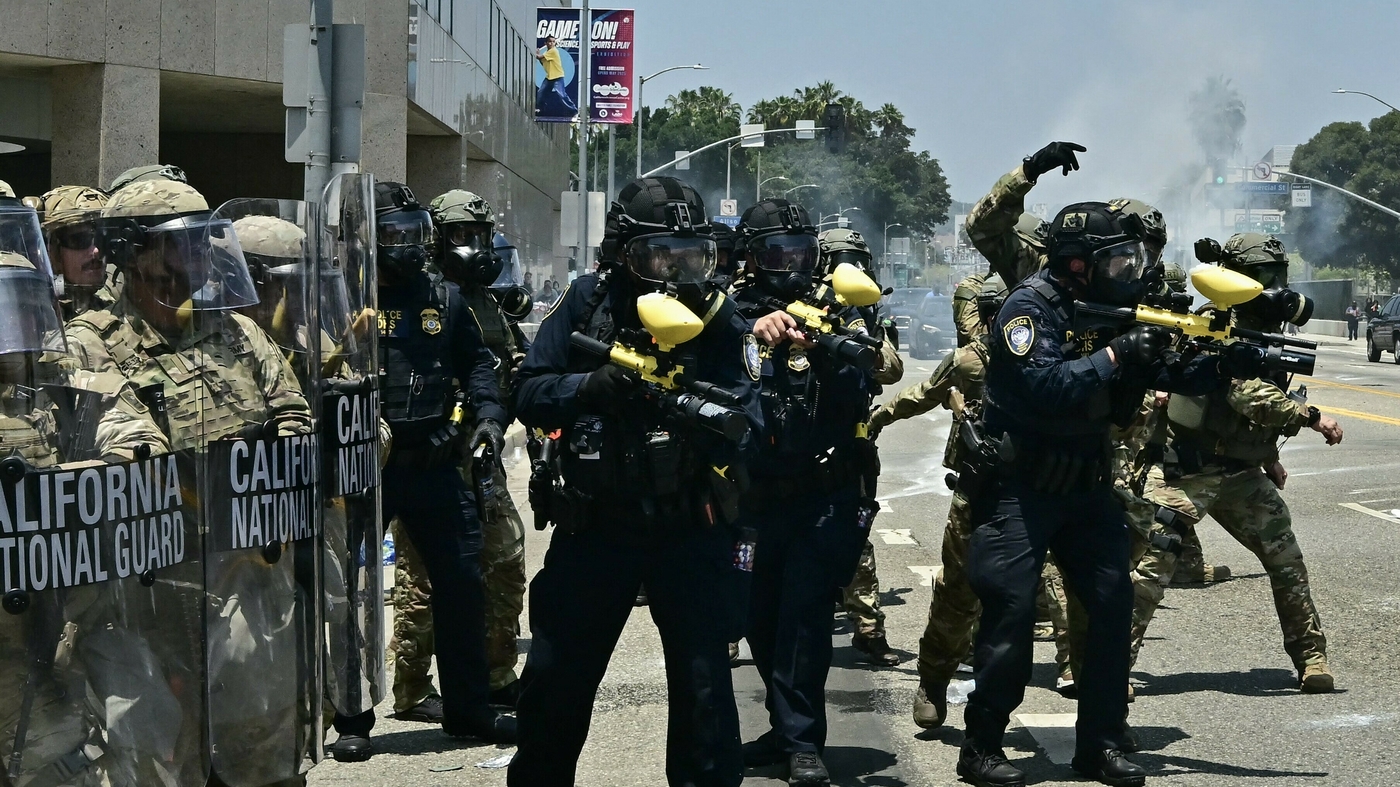The deployment of federalized National Guard troops to Los Angeles amidst immigration-related unrest encapsulates a deeply complex nexus of governance, community dynamics, and political conflict. Examining this scenario reveals not only the specific tensions surrounding immigration enforcement but also broader questions about the balance of power between federal and state authorities, local leadership challenges, and the social fabric of a diverse urban community.
Context and Catalyst: Immigration Raids Spark Unrest
The immediate cause for the National Guard’s presence was a series of Immigration and Customs Enforcement (ICE) raids that ignited widespread protests in a city renowned for its sanctuary policies. Los Angeles, a metropolis characterized by progressive immigration stances and large immigrant populations, reacted strongly to these federal enforcement actions, culminating in confrontations between protestors and law enforcement.
This unrest was not merely a spontaneous outburst; it reflected deep-seated anxieties about immigration policies perceived as aggressive and threatening to community cohesion. The local police struggled to contain the demonstrations and maintain order without escalating violence, setting the stage for a contentious federal intervention.
Federal Intervention: An Unprecedented Assertion of Authority
President Trump’s decision to deploy approximately 2,000 National Guard troops for sixty days marked a rare exercise of federal power, one that bypassed California Governor Gavin Newsom’s consent. Such unilateral action has been unseen in six decades, underlining an extraordinary escalation in federal involvement in local security matters.
By invoking a federal statute enabling this move, the administration framed the deployment as essential for restoring public safety amid violent protests and supporting immigration enforcement. Yet, this decision intensified political conflict by challenging established norms of federalism and state sovereignty. It raised fundamental questions about when and how the federal government should intervene in state affairs, especially in sanctuary jurisdictions like Los Angeles that explicitly resist certain federal immigration policies.
Local Leadership’s Resistance: Mayor Karen Bass’s Stand
Mayor Karen Bass emerged as a vocal critic of the National Guard deployment, highlighting it as a “chaotic escalation” that fueled fear rather than calm the city’s unrest. Bass’s confidence in the Los Angeles Police Department’s ability to maintain order underscored her commitment to local governance and skepticism about federal troops’ utility in resolving the crisis.
Her stance articulated concerns about the militarization of urban spaces and the exacerbation of distrust between immigrant communities and law enforcement. For a city that prides itself on sanctuary protections, the visible presence of federal troops risked deepening alienation and anxiety among vulnerable populations. Bass positioned herself alongside Governor Newsom in a political coalition that framed the move as politically motivated overreach rather than a strategic necessity, emphasizing respect for democratic norms and local autonomy.
Public and Media Responses: Deeply Divided Opinions
Public reaction to the intervention was sharply polarized. Supporters of the federal action accused local officials of tolerating disorder and failing to protect the city, while critics decried the deployment as an intimidation tactic that militarized the streets unnecessarily.
Media coverage reflected this divide, balancing straightforward reporting with the political dramatization of the conflict. Conservative commentators often attacked Mayor Bass’s leadership, whereas activists and community members largely echoed her warnings about the negative impacts on civil rights and community trust.
This split exemplifies how immigration enforcement and public safety are not merely operational concerns but potent symbols in the larger culture wars shaping American society.
Broader Implications: Governance, Trust, and Federalism
The dispute over the National Guard speaks to larger governance questions. The federal government’s capacity to override state authority touches constitutional principles and the practical considerations of managing civil unrest. It exposes tensions between punitive federal immigration measures and sanctuary cities’ efforts to protect their residents, highlighting the complex interplay between legal jurisdiction and political ideology.
Mayor Bass’s leadership challenge lies in navigating this fraught terrain—balancing public safety with civil liberties and community comfort. Her opposition to militarized responses reflects a broader sensitivity to the underlying social dynamics and a commitment to preserving trust between government and constituents.
However, this approach also subjects the city to criticism of inadequate enforcement and public order, illustrating the difficult trade-offs urban leaders face amid competing priorities.
Navigating the Path Forward
As the deployment continues, effective crisis management will require local authorities to maintain transparent communication, de-escalate tensions, and engage constructively with community concerns. The underlying unrest signals deeper systemic issues with immigration policy and enforcement that need addressing beyond short-term security measures.
Mayor Bass’s emphasis on local control and caution about escalation embodies a critical perspective in today’s polarized political environment. Moving forward, developing collaborative strategies that honor civil rights while safeguarding public safety is paramount.
Moreover, this conflict invites a closer look at how federal and state governments interact in managing complex social crises, perhaps pushing towards new frameworks that better reflect diverse urban realities and tensions inherent in immigration debates.
Conclusion: A Pivotal Moment in Urban Leadership and Federal-State Relations
The National Guard deployment to Los Angeles during immigration protests stands as a landmark moment revealing the multifaceted challenges urban leaders face at the crossroads of national policy and local impact. Mayor Karen Bass’s opposition crystallizes fundamental debates over governance, community trust, and the limits of force in democratic societies.
This episode highlights how the responses to civil unrest have far-reaching consequences—not only for immediate public safety but also for the legitimacy of institutions and the fabric of community relations. Its resolution will likely shape the future discourse on immigration enforcement, federalism, and the role of local leadership in times of crisis, making it a defining moment for Los Angeles and a microcosm of national tensions.

